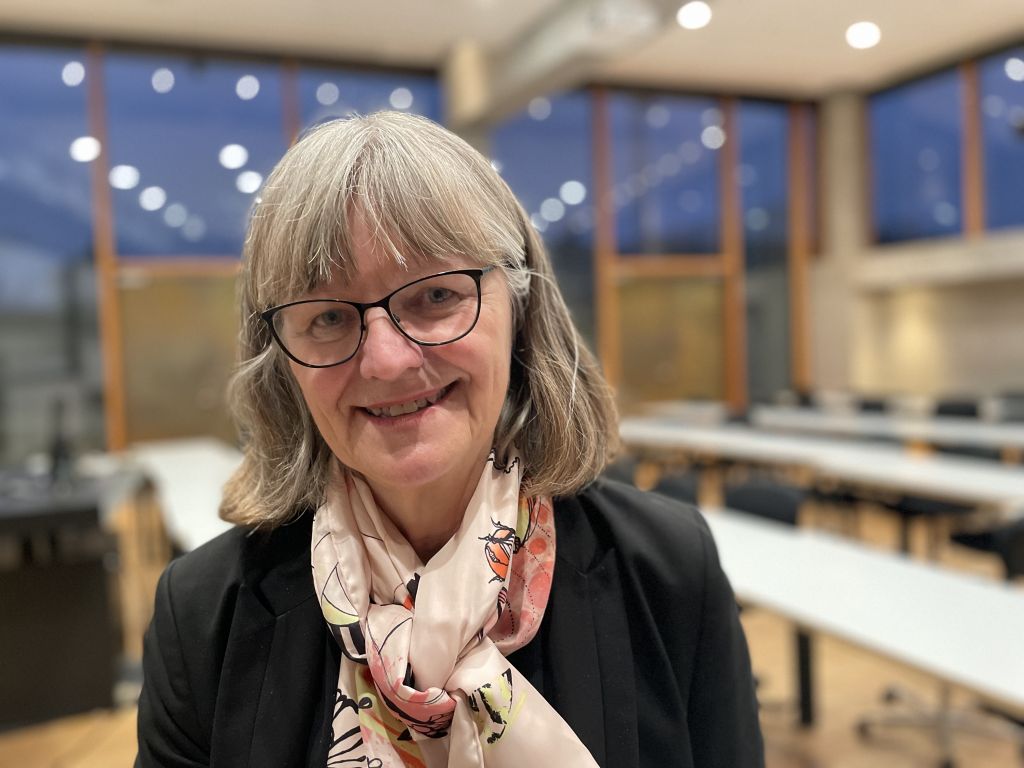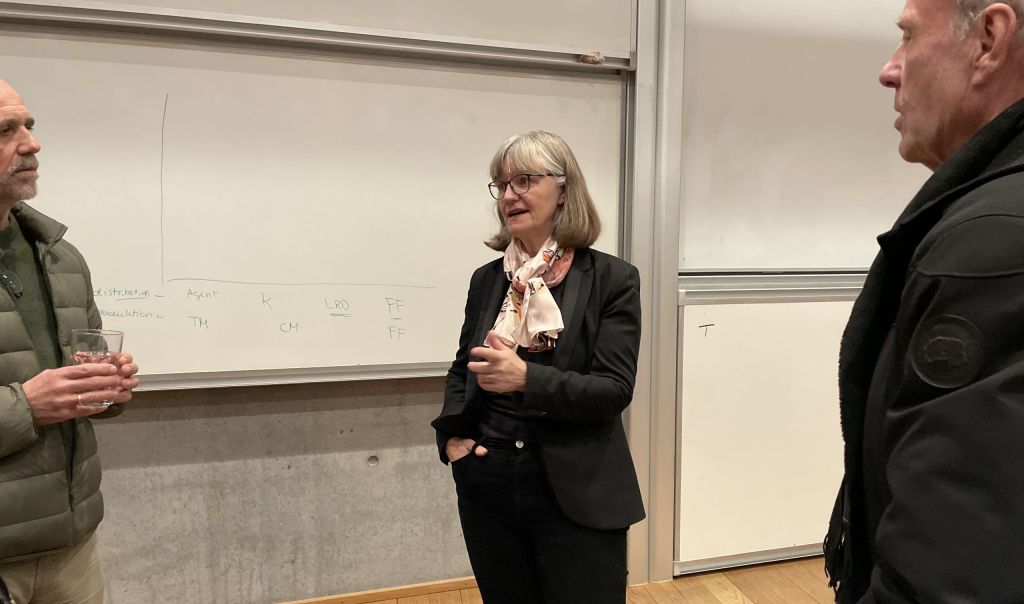Professors fear shorter master’s degree could lower academic standards

A reform of master's programmes in Denmark will likely have an effect on CBS. Photo: Anna Holte.
Shorter Master’s programmes, less student grants, improved teaching quality, and more life-long learning opportunities. As the new Danish government takes shape, some of the proposals in the Danish education reform, which have sparked widespread debate over the last couple of months, are now on their way to being realised. In early December, Nina Smith, the economist who leads the government’s Reform Commission, visited CBS to present the reform of which many professors are sceptical.
The proposed education reform implies extensive changes to the way higher education is organised in Denmark. Many of the proposals are soon to be rolled out by the new coalition government led by Mette Frederiksen and the Social Democrats.
The ultimate objectives are to increase the number of people in the workforce, improve the quality of education and to lessen bureaucracy. In particular, the shortage of healthcare workers and teachers means the government wants to attract more people to these fields.
Since the Reform Commission started publishing concrete suggestions in the spring, educational institutions, as well as a variety of other actors, have been vocal in their criticism.
One of the proposed changes which has sparked a lot of controversy, and that would have the most effect on CBS, is to create a new one-year master’s degree.
Too many graduates
The number of university-educated people in Denmark has greatly increased in the last thirty years. In 1990, 11% of the Danish youth had completed a university master’s, whereas by 2019 as many as 27% had. That’s too many thinks the Commission, which wants to get students out of universities and into the workforce faster.
Do they really need two years of master’s studies? No, thinks the Commission and proposes turning half of all master’s programmes into one-year degrees of 75 ECTS.
The shorter master’s degrees are especially intended for the humanities and social sciences. In these fields, 70% of programmes would become one-year degrees, while in the technical and natural sciences, only 30% would.

Nina Smith, economist and leader of the government’s Reform Commission, visited CBS in early December. Photo: Caroline Hammargren.
Nina Smith laid out her reasoning in front of the Professors’ Association at CBS with the help of slides and graphs, arguing that the benefit of that last master’s year is often marginal, for the individual as well as society.
“Do you need that high level for such a high proportion of the population?” she asked rhetorically, maintaining that many of those who enter the workforce with a two-year master’s could do the same job for the same salary with one year less of studies.
But many professors in her audience were sceptical, pointing to the fact that businesses already don’t want to hire graduates with only a bachelor’s degree.
“We try to get the businesses to take smart kids after three years, but they say they don’t want them if for the same price they can get master’s students who’ve been educated for five years,” one attendee said.
Usually, it is a good idea to make a pilot, but the problem is that those who participate may lose from it. You have to make it large scale to push the equilibrium where you accept that a one-year master’s is as good as a two-year.
Nina Smith, economist leading the government’s Reform Commission
In addition to creating two tiers of master’s graduates, professors raised worries that academic standards will be compromised, students will be stressed, and that the best researchers and research will eventually leave the country. However, several professors, as well as Nina Smith herself, said that many students seem to actually like the idea of graduating faster.
Some CBS professors also thought that the social sciences were unjustly being “lumped together” with the humanities and that this could have a negative effect on the field.
“There might be high unemployment among humanities graduates, but there isn’t among social science graduates,” insisted one professor.

Members of the Professors’ Association at CBS had many questions for Nina Smith. Photo: Caroline Hammargren.
Another concern is that the one-year master’s programme could be first in line if education cuts are required in the future.
“If the government needs money for other areas, we know education is very expensive and it would be easy to cut the one-year programmes. If that happens, it would be a disaster,” said one professor.
Nina Smith could provide no comfort to this worry, but only a bit of stark realism.
“You are right. That’s the risk of having democracy and politicians and all that,” she answered.
Flexibility to study a master’s later in life
The Commission also wants to make it easier to study a master’s later in life and easier to change fields. The part-time graduate diplomas (erhvervsmaster) that professionals can take while working should also become free of charge and more common than they are today.
“Master’s are for free, while there are fees when you take further education and that’s not rational if you want a more flexible system,” said Nina Smith.
Most Danish master’s programmes today require a degree in a similar field for admission. That should change so that cross-disciplinary studies can become more common.
“Students from humanities should be able to take, for example, a one-year CBS Master in Business or IT,” explains Nina Smith.
No grants for master’s students
Another controversial proposal is to remove the student grant (SU) at master’s level and instead make it into a loan. According to Nina Smith, this would not impact social mobility, as those affected are already on their way to becoming among the highest paid in Denmark:
“If you look at other Scandinavian countries, we have a very generous system, and it costs a lot. SU is the only income transfer that goes from poor to rich, especially if we look at master’s level. If you have completed a bachelor’s there’s a good chance you’ll end up in the higher end of the income bracket. There is no research suggesting that it would reduce social mobility. SU is extremely important at lower levels but at master’s level I would argue that it is not.”
She also underlined that the reform is not a cost-saving exercise. What is being taken will be reinvested elsewhere in the education system.
According to Nina Smith, the proposed changes are so vast that they have to be rolled out all at once.
“Usually, it is a good idea to make a pilot, but the problem is that those who participate may lose from it. You have to make it large scale to push the equilibrium where you accept that a one-year master’s is as good as a two-year,” she said.
On December 14, Mette Frederiksen presented the new Danish government its political platform, which includes several of the Reform Commissions proposals such as the controversial one-year master’s and a reform of SU.

































































































































Comments